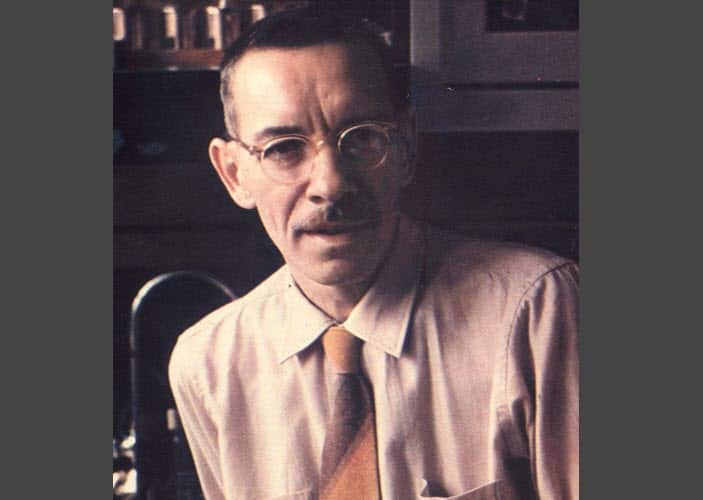Alfred Day Hershey: Unraveling the Genetic Secrets of Viruses

Alfred Day Hershey (4 December 1908 – 22 May 1997) was an American bacteriologist and geneticist. He was awarded the Nobel Prize in Physiology or Medicine in 1969.
Life and Career
He was born on 4 December 1908, in Owosso, Michigan, United States. Hershey’s interest in biology was sparked during his undergraduate studies at Michigan State University, where he delved into the fascinating world of genetics and microbiology.
After completing his undergraduate studies, Hershey embarked on a remarkable journey in pursuit of scientific excellence. He pursued a Ph.D. in Bacteriology at the prestigious Department of Bacteriology at the University of Michigan. During this time, he worked under the guidance of renowned scientist and geneticist G.W. Beadle, who had a profound influence on Hershey’s research interests and approach.
His groundbreaking work on bacteriophages, which are viruses that infect bacteria, catapulted him to international acclaim. His most notable achievement came in 1952 when he conducted a series of experiments that elucidated the mechanism of viral replication. Hershey, along with his collaborator Martha Chase, conducted an ingenious experiment using radioactive isotopes to trace the DNA of bacteriophages.
Their famous “blender experiment” conclusively demonstrated that it is the viral DNA, and not the protein coat, that enters the host bacterial cell and initiates the replication process. This groundbreaking research provided substantial evidence in support of the concept that DNA carries genetic information in living organisms. He died on 22 May 1997, in Syosset, New York, United States.
Award and Legacy
He was awarded the Nobel Prize in Physiology or Medicine in 1969, for his work on bacteriophages.
His contributions to molecular biology have had a lasting impact on the scientific community. His research laid the foundation for the field of phage genetics and provided key insights into the mechanisms of viral replication. This work also played a pivotal role in the broader understanding of DNA as the carrier of genetic information, paving the way for subsequent breakthroughs in genetics and genomics.
Observer Voice is the one stop site for National, International news, Sports, Editor’s Choice, Art/culture contents, Quotes and much more. We also cover historical contents. Historical contents includes World History, Indian History, and what happened today. The website also covers Entertainment across the India and World.

